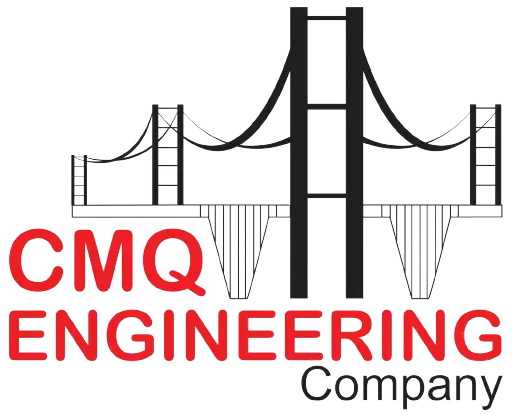Starting a construction business is a big opportunity. It’s all about knowing the building trade, being smart with money, and wanting to make it work.
To start, you need a good plan and something special that makes your business different from all the others. With decades of experience in the construction industry, CMQ Engineering’s guide will show you how to go from starting to finishing your first big job.
Understanding the Construction Industry
Before you start your construction business, knowing what’s happening in the industry is important. It changes a lot because of the economy and new laws. If you’re new, learn about different kinds of building projects like homes, offices, and big structures. Knowing this stuff helps you plan your next steps.
Conducting a Comprehensive Market Analysis
A solid business starts with a firm foundation; detailed market analysis is your bedrock. This step is pivotal in identifying potential growth sectors, understanding your competition, and realizing the lay of the market land for your niche. Technology advancements, sustainability requirements, and emerging trends in green building are hot topics that need to be on the radar of your market analysis.
The information gathered will influence your service offerings, pricing strategies, and geographic targeting. Don’t forget to pull demographics and economic data to confirm your strategically sound business location.
Formulating Your Business Plan
Think of your business plan as a detailed map that guides your construction company. It should clearly outline your company’s purpose and goals, analyze its strengths and challenges, identify who will use your services, and explain how you’ll manage your finances and daily operations. It’s also important to show what makes your company unique and how you plan to attract customers.
Remember, this plan isn’t just for you; investors and lenders will look closely at it to decide if they want to support your business. Including a strong marketing strategy and analyzing your competition will make your business plan even more convincing.
Aligning with Legalities
Starting a construction company in the USA means dealing with much legal stuff. First, you must register your business with the state and get a name no one else uses. Then, you have to get the right permits and licenses, including background checks, and ensure you have insurance and a bond, which is like a safety net for your work.
You also need to follow the rules from OSHA, which is all about keeping your workplace safe. Plus, there are other laws about protecting the environment and making sure everything is built right. It’s a good idea to have a lawyer who knows about building stuff to help you.
They can ensure you do everything by the book and help you choose the best setup for your business, like being a sole owner or starting a partnership or corporation. This way, you can focus on building great things while staying on the right side of the law.
Organizing Your Company’s Operational Essentials
With strategic planning and the completion of initial legal steps, you can proceed to set up the operational frameworks that will give life to your company.
Establishing Prime Locations and Supply Chain Partnerships
Location, location, location. It is a cliche in real estate, but vital in construction. Your company needs a base of operations, and this decision should be influenced by logistical feasibility and proximity to your primary clientele. Additionally, securing reliable suppliers is imperative in maintaining project continuity and quality of work.
Implementing lean supply chain management practices can cut costs and provide a competitive edge. Develop vendor relationships built on trust and mutually beneficial partnerships that last throughout your company’s growth.
Deploying the Right Tools and Equipment
Your operations rely heavily on the right equipment. Leasing or purchasing tools and heavy machinery can be a significant upfront cost. Make thoughtful decisions based on current needs and forecast future demands. Safety should never be an afterthought; invest in high-quality personal protective equipment and ensure all employees are well-trained in its use.
Remember that as projects’ scopes and scale increase, your inventory needs will as well. Create a roadmap for continuous equipment upgrades and replacements to maintain efficiency and safety standards.
Building Your Dream Team
A construction company is only as good as its people. Hiring skilled and dedicated professionals is critical to your company’s reputation and success. Establish clear and compelling recruitment strategies to attract the best talent. Develop a robust onboarding process to familiarize new employees with company policies and safety procedures.
Continual professional development and growth opportunities encourage staff retention – an often underestimated aspect in an industry with high turnover rates.
Crafting a Strong Brand Image
Your construction business’s brand is more than a logo; it encapsulates your company’s values, reputation, and promise to your customers. Developing a brand strategy will differentiate you in the market and attract customers who align with your core values.
Focusing on Your Unique Selling Proposition (USP)
What sets your construction company apart from the myriad of competitors? Define your unique selling proposition clearly. It could be unrivaled customer service, innovative construction techniques, or a niche specialization within the industry. Use your USP to inform all aspects of your business, from project bidding to customer communication.
Marketing for Impact and Outreach
With the foundations in place, now is the time to shout about your business. A comprehensive marketing strategy will ensure your company’s name is recognized. Traditional marketing initiatives can be valuable, but the construction industry is increasingly digital. Establish a presence on social media platforms, create content that showcases your expertise, and utilize digital marketing techniques to reach a broader audience.
Networking is a powerhouse in the construction industry, attending trade shows, joining professional associations, and fostering relationships with other industry players can lead to valuable partnerships and projects.
Defining a Clear Communication Strategy
Clear and consistent communication can mean the difference between project success and failure. Create a communication protocol that includes regular client updates, a structured reporting system for employees and subcontractors, and a process for managing client feedback. This framework ensures all stakeholders are informed and involved, building trust and enhancing your brand’s integrity.
Managing Finances Wisely
Construction businesses require substantial investments in materials, equipment, and labor. Effective financial management is essential to sustainability and growth. Formulating a budget, managing cash flow, and securing financing are crucial financial activities for a new construction startup.
Budgeting and Forecasting
A realistic budget aligned with your business plan is foundational to financial success. Include all projected costs, from gasoline for machinery to potential overtime pay. Create financial forecasts for the first few years to give you an idea of revenue expectations and potential challenges.
Accurate budgeting enables you to make informed decisions and adjust your business operations accordingly.
Acquiring the Necessary Funding
Consider your funding options once your budget and financial projections are in place. Construction projects are often paid for in stages, but you need the cash flow to cover upfront costs until payments are received.
Small business loans and lines of credit are viable funding mechanisms. Equity investments from partners are another path to consider. Be prepared with financial documents, including your business plan, when applying for funding to demonstrate the viability and potential of your company.
Managing Cash Flow
Cash flow management is a perennial challenge in the construction sector. Unforeseen costs, project completion delays, or client payments can disrupt your company’s operations. Implementing a robust invoicing process, enforcing payment terms, and discipline in expense management can mitigate these risks.
Utilize the software and financial tools to track and manage cash flow in real-time, ensuring your business has the liquidity to seize opportunities and weather downturns.
Navigating Growth and Expansion
Finally, you’ll want to explore growth opportunities as your construction company matures. Strategic scaling and diversification are key elements in your long-term success. However, growth should be sustainable and not outpace your management abilities or the availability of resources.
Developing a Growth Strategy
When you feel the time is right, scale your operations. Invest in additional equipment, hire more personnel, or expand into new service areas. Conduct further market analysis to identify growth sectors and align your business plan accordingly.
Maintain the quality of your services during periods of growth by implementing quality control measures and ensuring your workforce is appropriately skilled and trained.
Diversifying Your Service Offerings
Diversifying your service offerings can help protect your business from the cyclical nature of construction. It also allows you to serve a broader client base. Consider branching into related areas, such as project management, building information modeling (BIM), or facility management services.
Exploring additional revenue streams, like real estate development or property management, can also provide stability and growth opportunities for your company.
Adapting to Market Trends
The construction industry continually evolves, driven by new materials, technologies, and methodologies. Staying abreast of these changes and proactively adapting your business is vital. This could mean integrating sustainable building practices, adopting prefabrication techniques, or investing in cutting-edge software for project management.
Continual learning and evolution keep your business competitive and at the forefront of industry advancements.
Conclusion
Starting a construction business takes a lot of work, but it can be successful with good planning and focus on doing things right. Always keep learning because every building project is different. Build a great team, use the latest tech, and watch your money closely.
CMQ Engineering this guide will help you start your construction business correctly and grow it into something big. Just like a strong building needs a solid foundation, your business needs good planning and hard work. If you do it right, you can reach high!










